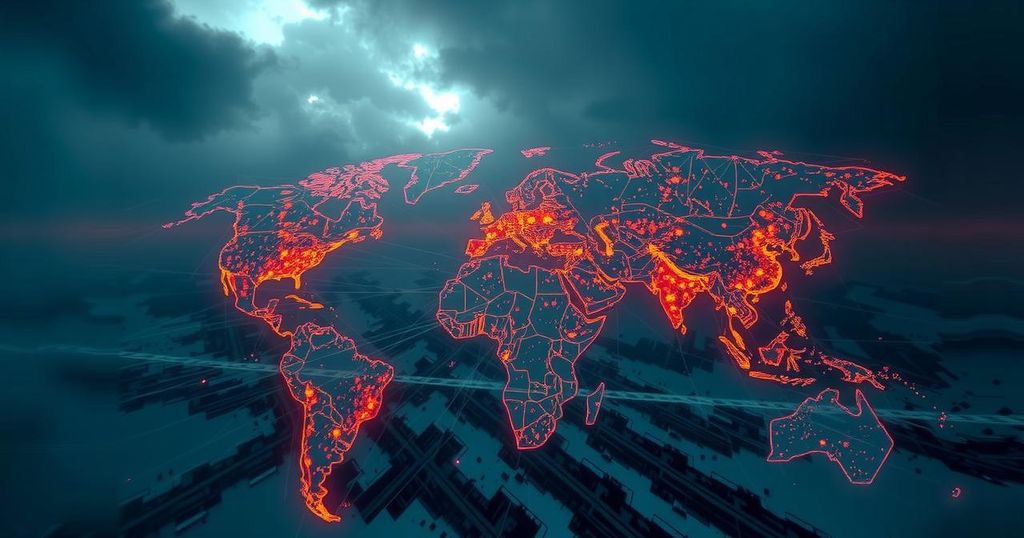The Climate Crisis and Its Role in Extreme Weather Events: A Scientific Overview
The scientific consensus increasingly links the climate crisis to extreme weather events, with attribution studies indicating a marked increase in frequency and intensity due to human-induced climate change. The findings demonstrate that heatwaves, floods, and other disasters are significantly worsened by global heating. This evidence highlights the urgent need for action to address climate issues and mitigate adverse effects on vulnerable populations.
The climate crisis is intricately linked to the rise of extreme weather phenomena, leading to significant challenges for communities worldwide. Increasingly sophisticated climate attribution studies have allowed researchers to determine how much of this extreme weather can be attributed to human-induced climate change, particularly from fossil fuel emissions. The findings reveal that severe events, such as heatwaves and floods, occur with greater intensity and frequency now than in the past, posing unprecedented threats to human survival and infrastructure. Attribution studies utilize a combination of methods to assess the influence of climate change on weather events. By comparing contemporary weather data with historical records, scientists can discern the frequency of extreme events today versus the cooler climate of the past. Additionally, climate models simulate varying scenarios of emissions over time, helping to identify trends in extreme weather, thus revealing the extent of human impact on climate patterns. Research has shown that heatwaves have been particularly affected by climate change, resulting in previously unprecedented conditions in multiple regions including Europe and North America. Of the 744 studies compiled by Carbon Brief, a substantial 75% indicate global heating exacerbating extreme weather conditions. Furthermore, the challenges extend beyond heatwaves; floods and droughts are increasingly influenced by warming temperatures. For instance, over 60% of assessed rainfall events have been linked to elevated temperatures, amplifying the severity of flooding. While estimating human-induced impacts on the mortality associated with extreme weather remains complex, emerging data suggest a strong correlation. Analysis has revealed that global warming has led to significant numbers of heat-related fatalities, alongside catastrophic economic impacts from major flooding events inadvertently intensified by climate change. Notably, Hurricane Harvey’s devastating flooding in 2017 would have been significantly less severe absent anthropogenic climate influences. Assessment methods extend to understanding the effects of weather patterns such as snowstorms and freezes, finding that global heating tends to diminish such occurrences. Notably, the legal implications of attribution studies are becoming increasingly relevant, as they serve as key evidence in litigations against corporate polluters and inform international climate negotiations, Nevertheless, it is crucial to recognize that not every extreme weather event has undergone attribution analysis, indicating the need for continued research efforts. The overwhelming body of evidence, however, endorses the premise that extreme weather is not only more common but also intensifying as the climate crisis unfolds, impacting vulnerable populations the hardest. As research progresses, our understanding of global heating’s role in extreme weather continues to deepen, affirming the immediacy and scale of the crisis we currently face.
The ongoing climate crisis, primarily driven by human activities such as fossil fuel consumption, has resulted in unprecedented changes to global weather patterns. The need to understand the causes and effects of this phenomenon has prompted researchers to develop rigorous methodologies to attribute extreme weather events to climate change. Attributing the influence of climate change on such events is essential for policy making, risk management, and addressing accountability for environmental damage.
In conclusion, the compelling evidence from climate attribution studies highlights the profound influence of the climate crisis on extreme weather events. These studies showcase an unmistakable correlation between human-driven climate change and the increased frequency and intensity of severe weather, including heatwaves, floods, and droughts. As we continue to uncover the implications of these findings, it is essential to address the emergency with informed strategies to mitigate its impacts.
Original Source: www.theguardian.com




Post Comment